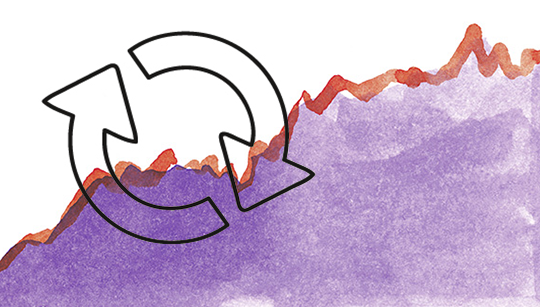Author: NN Investment Partners

As central banks dial back their accommodative monetary policies this year, investors are likely to modify their mind-sets. Volatility may play a bigger role as the scene changes.
The market environment may be heading towards a new phase as central banks scale back monetary policy accommodation. These policy moves will no doubt prompt many investors to shift from a “lower for longer” mind-set to one of normalization. At the same time, the macro outlook for the coming quarters remains solid with the synchronized growth path set to continue, and could act as a counterbalance that keeps volatility in check.
End of accommodative policy is shaking up markets
The recent decline in risky assets and rise in bond yields is most likely not due to a deterioration in the underlying fundamentals, which remain strong both on the macro and corporate fronts. Probably it was more driven by the perception that we are approaching the end of the very accommodative monetary policy stance, combined with extended positioning and high investor optimism.
The rate-sensitive real estate market suffered the most, which is no big surprise in an environment of a global rise in bond yields. Within fixed income, we notice the resilience in fixed income spread products.
Downgrade Bunds, real estate
We downgraded German 10-year government bonds from a small to a medium underweight. The strength in macro data and the fact that we are moving closer to the end of extreme monetary policy accommodation has led to higher bond yields. These have now broken out of the trading range we have witnessed throughout 2017. Also our behavioural indicators moved further south with investor sentiment towards treasuries, momentum and flow dynamics all three negative.
We also cut real estate from a small overweight to neutral. This “bond proxy” asset class is being hurt by a double headwind: investors preferring cyclical exposure to search for yield and rising bond yields. In addition to the structural challenges of the sector this was enough reason to remove the overweight and to go neutral.
Equities enjoy a strong January despite month-end slump
We keep a small overweight in equities. Global equity markets gave up all of this year’s gains in the past week due to headwinds from higher bond yields and a weaker US dollar, but the month of January as a whole was still strong, with a 1.5% gain. Emerging Markets defied the higher Fed Fund expectations and were the best performer, while the UK was the worst. Sector-wise, cyclical sectors turned in a strong performance whereas the bond-proxies suffered from the higher yields.
Outlook remains constructive for equities
Looking ahead, we maintain a constructive fundamental view on equities. This is linked to the benign macroeconomic environment, which is characterized by robust growth in all regions and supported by consumers, corporates and governments. This means that the risk of a recession over the next 12 months is very low.
Historically, recessions have been the only force that have consistently turned an equity bull market into a bear market. This does not mean it will be a smooth ride. We expect more volatility as global monetary policy passes the point of maximum ease in the course of this year. Trends in inflation data will determine central bank behaviour, and will need close monitoring.
Linked to this good growth outlook, we think that global earnings can continue their double-digit growth rate. Margins have room to expand, especially outside the US as wage growth remains low and cyclical sector earnings recover. Commodity, Financial and Technology earnings will play a crucial role in this margin recovery.
Currencies will play a significant role
The ongoing Q4 result season confirms the positive trend in earnings with a broad-based beat of consensus estimates both on revenues as well as on net profit. Currencies will play a significant role in the outlook, whereby a weaker currency creates a competitive tailwind and vice versa. Overall, we believe that earnings quality is best in the Eurozone and Japan. In the US it is more driven by tax law changes and a weak US dollar.
Upgrade energy stocks
Both the Energy and Materials sectors have recently underperformed the MSCI World slightly. We think this represents a buying opportunity, especially for Energy. We upgraded this sector from a small to a medium overweight for the following reasons:
Profitability is being restored. We think that at current oil prices the profitability of the sector improves rapidly. Interesting to know is that during the period 2004-2009 when oil rose from USD 50 to above USD 100/barrel, the profit share of the energy sector in total profits was around 15%. Now it is only around 6%.
This renewed earnings capacity is important for the dividends of the sector. The oil companies tried to maintain their lofty dividend payments during the crisis years by taking on more debt. Today they can probably pay it out of their cash flow. The current dividend yield is 3.5% on a global level and even 5.4% for the European players.
The relative performance of the sector has also lagged the improvement in the oil price. On this point the Materials sector (or the metal & mining industry) has behaved differently. This sector has more closely followed the improvement in industrial metal prices. This explains why we only run a small overweight in the Materials sector.
On the behavioural side and according to the latest fund manager survey, we observe that Energy contrary to Materials is not a consensus overweight. Active equity flows from institutional investors are also positive.
Our small overweight position in equities in our tactical allocation reflects our cautious stance. On the one hand there is the tailwind of favourable macro and corporate fundamentals; on the other hand we observe increasing signs of investor optimism and high positioning.
.png)


